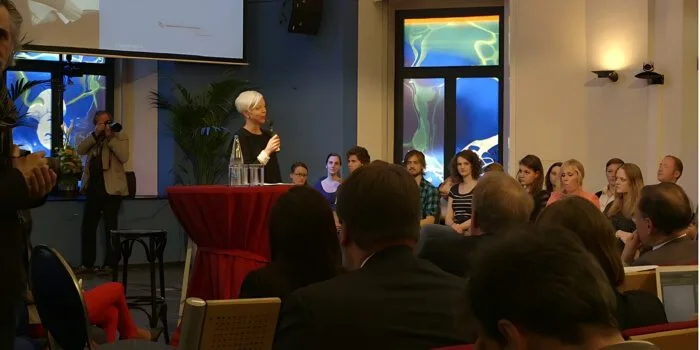Human rights conferences are essential platforms for activists, advocates, and scholars to exchange ideas and strategies for promoting justice and equality. At the heart of these gatherings is an unwavering commitment to human rights. The aim of this is to ensure that everyone is treated with dignity and respect at all times.
There might be a time when, if you plan to attend one of these events, you might wonder, “How much does it cost to attend a human rights conference?”
The expenses can vary significantly, ranging from $100 to $1000 or more for registration fees alone. In addition, there are additional costs for travel, accommodation, and other necessities.
Several conferences present financial assistance to students and non-profits as well as special rates for student registration.
Read on for a detailed breakdown of conference costs as well as budgeting tips on how to stay within a budget.
Mission of Human Rights Conference
The mission of a human rights conference is to provide a platform for individuals and organizations to promote and protect human rights as a whole.
There is a strong focus on these gatherings to promote dialogue, share knowledge, and explore strategies for addressing pressing human rights issues in a global context. Attendees, including activists, scholars, policymakers, and representatives from non-governmental organizations, come together to discuss challenges, share best practices, and advocate for change.
A key focus is raising awareness about human rights violations, advocating for marginalized communities’ rights, and promoting social justice and equality. Diverse voices and perspectives are brought together at human rights conferences so that action can be inspired, policies can be influenced, and the global movement for human rights can be strengthened.
They catalyze change, empowering individuals and organizations to work together toward a world where everyone’s rights are respected and protected.
Different Types of Human Rights Conferences
Human rights conferences come in various forms, each focusing on different aspects of human rights issues. These gatherings play a crucial role in advancing the cause of human rights globally.
Here are some of the different types.
International Human Rights Conferences
Global human rights issues are discussed at these conferences. International organizations, governments, and non-governmental organizations often participate. The focus is on promoting international collaboration and finding solutions to widespread human rights challenges.
Regional Human Rights Conferences
Focused on specific geographic areas, regional conferences address human rights issues relevant to a particular region. They provide a platform for discussing localized problems and developing strategies that are tailored to the cultural, political, and social context of that region.
Thematic Human Rights Conferences
Women’s rights, freedom of speech, and indigenous rights are some of the topics covered at these conferences. Researchers and activists can dive deep into particular issues, share research, and develop targeted advocacy strategies.
Academic Human Rights Conferences
Held by universities and research institutions, academic conferences focus on scholarly discussions about human rights theories, laws, and practices. They facilitate academic and human rights collaboration by presenting research findings and debating theoretical perspectives.
Grassroots Human Rights Conferences
Organized by grassroots organizations and community groups, these conferences focus on local human rights issues. They provide a platform for community activists to share their experiences, learn from each other, and build networks of support for grassroots human rights efforts.
Why Should You Attend a Human Rights Conference?
An international human rights conference can provide unique opportunities for networking, advocacy, and learning. Here are some reasons why you should consider participating.
Networking and Collaboration
Human rights conferences provide a platform to meet like-minded individuals, organizations, and experts from around the world. This networking can lead to collaborations, partnerships, and the exchange of ideas that can strengthen your work in the field of human rights.
Learning and Professional Development
Conferences offer a wealth of knowledge through workshops, seminars, and presentations. They are an excellent opportunity to learn about the latest research at conference, trends, and strategies in human rights advocacy, helping you stay informed and enhance your skills.
Advocacy and Raising Awareness
Human rights conferences raise awareness about important issues and contribute to global dialogue. It’s an opportunity to advocate for change, share your experiences, and bring attention to the causes you care about.
Inspiration and Empowerment
Listening to stories of courage, resilience, and success from other human rights defenders can be incredibly inspiring. It can reinvigorate your commitment to human rights work and empower you to continue making a difference in your community and beyond.
Personal Growth
Personal growth can be gained by attending these conferences. It challenges you to think critically, exposes you to diverse perspectives, and encourages you to reflect on your own values and beliefs regarding human rights.
How Much Does it Cost to Attend a Human Rights Conference?
For anyone passionate about promoting justice and equality, attending a human rights conference is one of the most valuable experiences of their lives.
But a common question is, “How much does it cost to attend a human rights conference?”
Obtaining an accurate estimate isn’t straightforward, as costs vary widely depending on several factors. Registration fees alone range from $100 to $1000 or more.
However, this is just the tip of the iceberg. Let’s dive into the key factors that influence the overall cost of attending a human rights conference.
The Conference Location
Costs are heavily influenced by the conference location. You can expect higher accommodation and transportation costs if the conference is held in a major city. Additionally, if the conference is international and requires long-distance travel, flight costs will be added.
Duration of the Conference
The length of the conference directly impacts the cost. Longer conferences mean more nights in a hotel and additional meals, which can add up quickly. It’s important to consider the duration when budgeting for your trip.
Types of Accommodation
Accommodation costs can vary greatly depending on the type of lodging you choose. Options range from budget-friendly hostels to luxurious hotels. Some conferences offer special rates for attendees at nearby hotels, so it’s worth checking for any available discounts.
Registration Fees
Registration fees are the most apparent cost associated with attending a conference. Fees vary depending on the scale, the organizing body, and any discounts (e.g., student rates, early bird discounts, or special rates for non-profit organizations).
Travel Expenses
Travel expenses include flights, local transportation (taxis, public transport), and any visas or travel insurance required. These costs can fluctuate based on your departure location, the time of booking, and the class of travel.
Meals and Personal Expenses
While some conferences may provide meals, you’ll likely need to budget for additional meals and personal expenses. This can include dining out, snacks, and any sightseeing or entertainment activities you plan to do outside of the conference schedule.
Additional Opportunities
Many conferences offer workshops, field trips, or networking events that may have separate fees. These activities are optional but can enhance your conference experience and provide valuable learning opportunities, so consider participating.
Scholarships and Financial Assistance
Several conferences offer scholarships and financial assistance to attendees, especially students, young professionals, and low-income countries. Explore these options well in advance, as they can significantly reduce your attendance costs.
As a result, the cost of attending a human rights conference varies widely. It’s imperative to research and plan to ensure you can make the most of the experience without breaking the bank.
Does The Cost Have Any Variety for Different Human Rights Conferences?
Yes, the cost of attending different human rights conferences can vary significantly. This variety in cost is influenced by several factors, which we’ll explore below.
Size and location
The location and scale of the conference determine the cost. International conferences held in major cities or popular tourist destinations tend to be more expensive due to higher accommodation and travel costs. Local or regional conferences are more affordable.
Type of Conference
The nature of the conference also affects the cost. For example, large-scale conferences organized by well-known international organizations might have higher registration fees compared to smaller, grassroots-level conferences.
Audience and Sponsorship
The fees for conferences aimed at professionals or with significant sponsorship might be higher to cover the costs of high-profile speakers. On the other hand, conferences targeting students or activists might offer lower fees or scholarships to encourage participation.
Additional Activities
Some conferences offer workshops, field trips, or special networking events that may have separate fees. These additional opportunities can add to the overall cost of attending the conference.
Human rights conferences can vary widely in cost depending on factors such as location, scale, type, audience, and additional activities. It’s worthwhile to research and budget accordingly to ensure that you can participate in a conference that aligns with your interests and financial capabilities.
FAQs
Human rights conferences play a vital role in promoting justice, equality, and human dignity worldwide. They provide a platform for discussions, networking, and advocacy. Here are some frequently asked questions about human rights conferences and their answers:
What is the International Conference on Human Rights?
The International Conference on Human Rights was a landmark event adopted by a consensus of 171 states on 25 June 1993. It aimed to evaluate progress in human rights since the Universal Declaration of Human Rights and set a new agenda for the global human rights movement.
What Are the 2 Main International Conventions on Human Rights?
The two main international conventions on human rights are the International Covenant on Economic, Social, and Cultural Rights (ICESCR) and the International Covenant on Civil and Political Rights (ICCPR). These covenants, along with the Universal Declaration of Human Rights, form the International Bill of Human Rights.
Are There Scholarships Available for Attending Human Rights Conferences?
Yes, many human rights conferences offer scholarships or financial assistance to help cover the costs for attendees, especially for students, young professionals, or those from low-income countries. It’s important to research and apply for these opportunities well in advance to reduce the financial burden of attending.
Conclusion
Accordingly, the cost of attending a human rights conference can vary significantly depending on its location, duration, and scale. If you’re wondering, “How much does it cost to attend a human rights conference?” It’s critical to consider registration fees, travel expenses, accommodation, and additional activities.
To make your travel more budget-friendly, look for early bird discounts, explore scholarship opportunities, and consider sharing accommodation with fellow attendees. You can ensure an affordable and meaningful conference experience by planning and researching your options.








